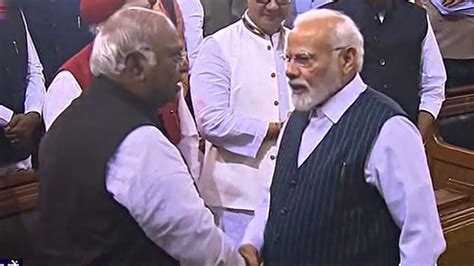On Sunday, September 30, 2024, Prime Minister Narendra Modi personally reached out to Congress president Mallikarjun Kharge after the veteran leader experienced a medical issue during a public rally in the Jasrota belt of Jammu and Kashmir’s Kathua district. The prime minister expressed concern for Kharge’s well-being, calling to check on his health and wish him a speedy recovery.
The incident occurred when Kharge, a key opposition figure, was delivering a speech at the rally, part of his political campaign efforts. He suddenly felt unwell and required immediate medical assistance. As soon as he showed signs of discomfort, local doctors attended to him on-site, and he was later taken for a thorough medical check-up to ensure his stability.
Congress leaders confirmed that Kharge’s condition had stabilized following the check-up. They emphasized that he is now recovering and in good spirits, ready to continue his political engagements. According to sources, Kharge remained calm throughout the medical episode and reassured his supporters after the incident.
The prime minister’s call came soon after news of Kharge’s condition emerged, marking a rare moment of personal outreach between the leader of the ruling Bharatiya Janata Party (BJP) and the Congress president, underscoring the significance of health and well-being, even in the midst of intense political rivalries. Official sources confirmed that PM Modi expressed his concern for Kharge’s health and wished him strength and a swift recovery.
Despite the episode, Kharge remained defiant in his political stance. After receiving medical attention, the Congress president addressed his supporters with characteristic resilience, declaring, “I’m not going to die before Mr. Modi is removed from power.” His statement, which sparked reactions from both sides of the political spectrum, reaffirmed his commitment to the ongoing political battle between the Congress and the BJP.
Kharge, who has been a prominent figure in Indian politics for decades, is known for his steadfast leadership in the opposition and his unwavering commitment to challenging the ruling party. His health scare, though brief, has drawn attention, but his determined response indicates that he is ready to continue his role in leading the Congress party through upcoming challenges.
This incident, while primarily a health concern, has also offered a glimpse into the human side of India’s often heated political landscape, where rivals can come together in moments of personal difficulty, yet continue to engage fiercely in the political arena.

